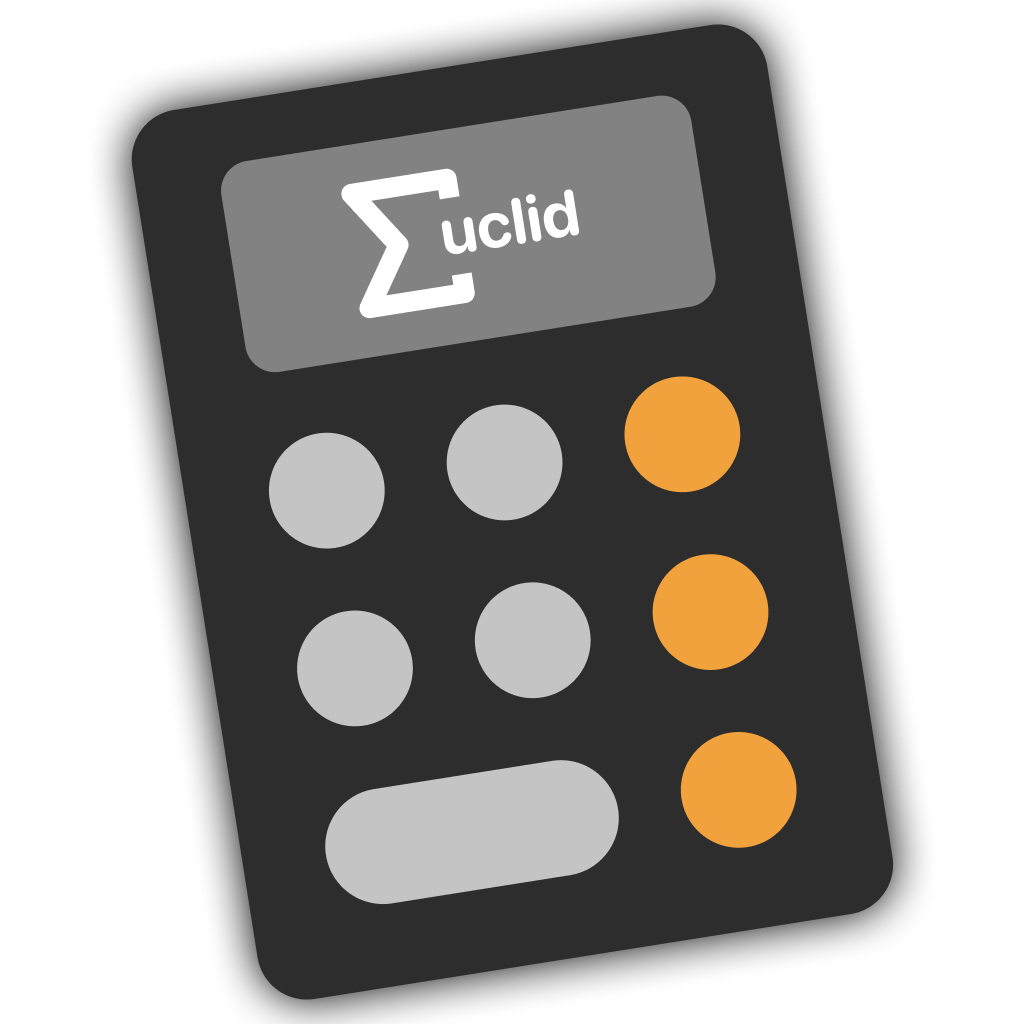Euler
A computanional framework written in SwiftEuler is a mathematical framework that is packed up with tons of useful mathematical functions. It is composed of functions in most mathematical fields such as algebra, number theory, statistics, etc… It was designed to help you turn your computer into a mathematical guru.
Links
- Documentation: https://euler.arguiot.com
Installation
:warning: There is a known issue that causes the build to fail when using Xcode 11.4 or superior. When you want to use Euler on the latest Xcode versions, consider using Cocoapods.
I’m already working with Apple to fix this, but if you have the solution, please open a pull request.
CocoaPods
CocoaPods is a dependency manager for Cocoa projects. For usage and installation instructions, visit their website. To integrate Euler into your Xcode project using CocoaPods, specify it in your Podfile:
pod 'Euler', '~> 0.3.4'
Carthage
Carthage is a decentralized dependency manager that builds your dependencies and provides you with binary frameworks. To integrate Euler into your Xcode project using Carthage, specify it in your Cartfile:
github "arguiot/Euler" ~> 0.3.4
Swift Package Manager
The Swift Package Manager is a tool for automating the distribution of Swift code and is integrated into the swift compiler. It is in early development, but Euler does support its use on supported platforms.
Once you have your Swift package set up, adding Euler as a dependency is as easy as adding it to the dependencies value of your Package.swift.
dependencies: [
.package(url: "https://github.com/arguiot/Euler.git", .upToNextMajor(from: "0.3.4"))
]
Manually
If you prefer not to use any of the aforementioned dependency managers, you can integrate Euler into your project manually.
Embedded Framework
- Open up Terminal,
cdinto your top-level project directory, and run the following command “if” your project is not initialized as a git repository:
$ git init
- Add Euler as a git submodule by running the following command:
$ git submodule add https://github.com/arguiot/Euler.git
Open the new
Eulerfolder, and drag theEuler.xcodeprojinto the Project Navigator of your application’s Xcode project.It should appear nested underneath your application’s blue project icon. Whether it is above or below all the other Xcode groups does not matter.
Select the
Euler.xcodeprojin the Project Navigator and verify the deployment target matches that of your application target.Next, select your application project in the Project Navigator (blue project icon) to navigate to the target configuration window and select the application target under the “Targets” heading in the sidebar.
In the tab bar at the top of that window, open the “General” panel.
Click on the
+button under the “Embedded Binaries” section.You will see two different
Euler.xcodeprojfolders each with two different versions of theEuler.frameworknested inside aProductsfolder.It does not matter which
Productsfolder you choose from, but it does matter whether you choose the top or bottomEuler.framework.Select the top
Euler.frameworkfor iOS and the bottom one for macOS.You can verify which one you selected by inspecting the build log for your project. The build target for
Eulerwill be listed as eitherEuler iOS,Euler macOS,Euler tvOSorEuler watchOS.And that’s it!
The
Euler.frameworkis automagically added as a target dependency, linked framework and embedded framework in a copy files build phase which is all you need to build on the simulator and a device.
Showcase
Here is a list of apps using Euler to work (not exhaustive)

Euclid Calculator
Euclid is a modern and fully featured calculator for macOS that aims to replace the default calculation app. Euclid uses Euler to parse and evaluate every calculations. It relies heavily on the Algebra and Tables modules.
Project
Inspiration
The project was largely inspired by:
Why Swift
In retrospect, it isn’t a surprise that Swift is a good fit for the needs of this project. Swift was designed and built by a close-knit team. That team previously built a highly modular and composable compiler infrastructure (LLVM), a compiler and runtime for a highly dynamic Smalltalk-derived language (Objective-C), the compiler for a highly static language with a capable generics system (C++), and a path-sensitive static analysis engine (the Clang static analyzer). Furthermore, the goals for Swift’s design was to build something that was as easy to learn and use as a scripting language, but which had enough power to be used as a system’s programming language.
Swift was the perfect language, because of its performance, modularity, easy to read syntax and concurrency APIs. Swift aims to maximize clarity of code, and thus it fights to reduce boilerplate. The top-end goal of Swift is to optimize the time it takes to write and maintain the project, which includes debugging time and other things that go beyond just pounding out the code.
Goal
Euler aims to provide provide the building blocks of numerical computing in Swift, as a set of fine-grained modules bundled together into a single Swift package. Euler is intended to be used to experiment with Swift and with its math capabilities. It also aims to serve as an algorithm database that could be ported to other languages.
Organization
Euler is built around two main objects: BigDouble and BigInt. They are both used to represent big numbers with precision. You can see Euler as a set of modules:
- Numerics:
BigDouble/BigInt& more > Helps to work with numbers - Algebra:
Expression> Helps parsing and working with mathematical expressions - Tables
>
Tableswas made for developing Excel-like software / parser. Statistics
Statisticswas designed to help with the mathematics of the collection, organization, and interpretation of numerical data, especially the analysis of population characteristics by inference from sampling.Visualisation & Geometry (
Graph)Utility for visualizing any set of
Pointusing SwiftPlot.Matrix & Vectors
Simple Matrix/Vector type. :warning: It only works on Apple devices, where
Accelerateis supported.Cryptography
Basic crypto algorithm implemented. We don’t recommend using this in production as this is more for experimental purpose.
 View on GitHub
View on GitHub
 Euler Reference
Euler Reference